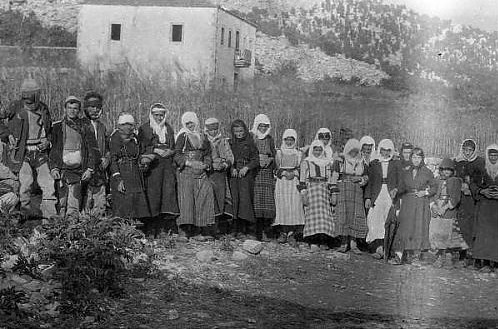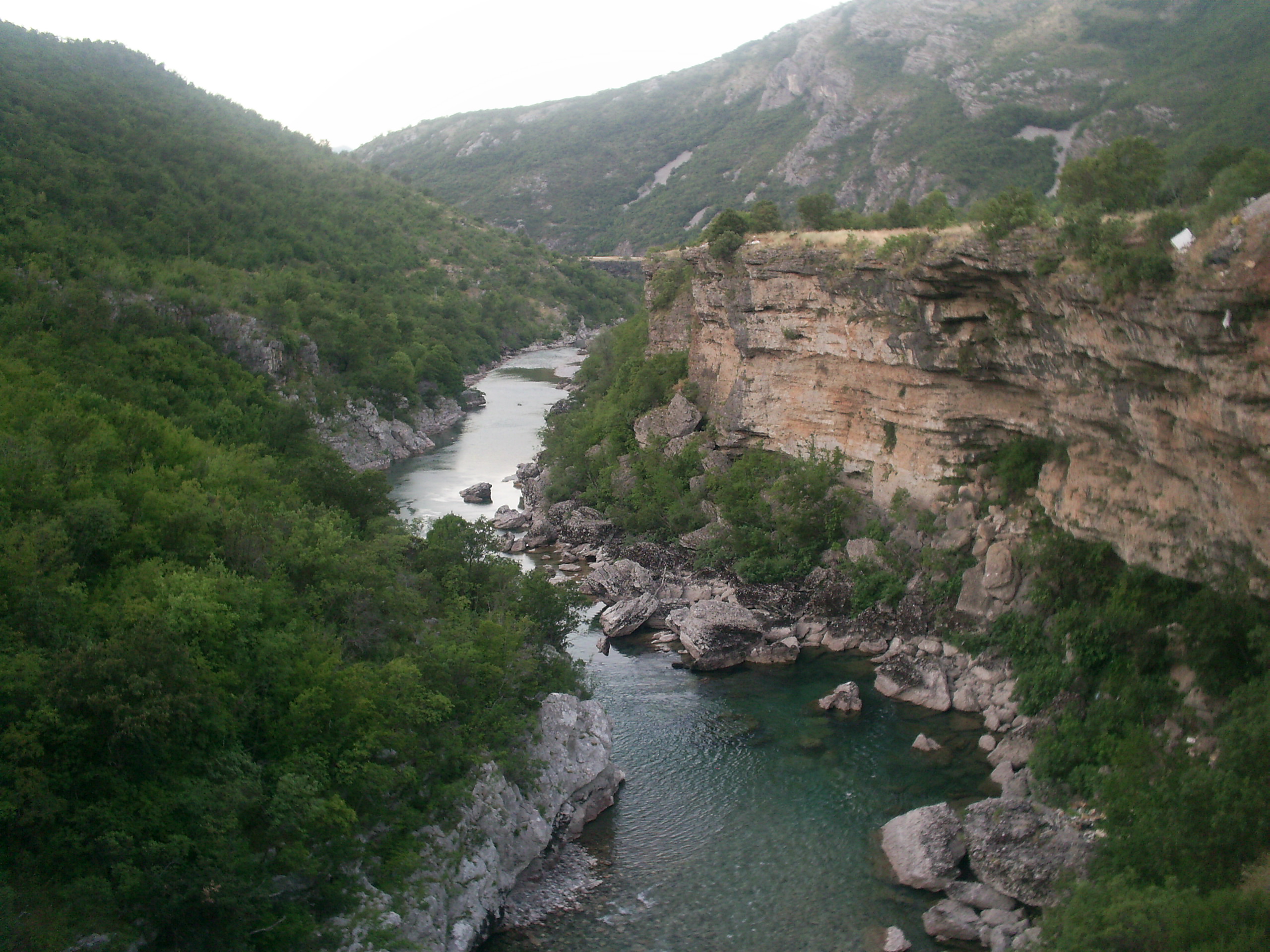|
Vuksan
Vuksan ( sr-cyr, Вуксан) is a Slavic masculine given name, derived from Slavic noun '' vuk'', "wolf". It is a hypocoristic, possibly of the name ''Vukoslav''. It is attested in the Middle Ages, and Serbian epic poetry. It is also used as a surname. The patronymic surname ''Vuksanović'' is derived from the name. It may refer to: As given name: *Vuksan Bilanović, Serbian pop lyrics writer (''Kraj i tačka'') *Vuksan ( 1477), Rovca ''knez'' and epic character (''Vuksan od Rovaca'') *Vuksan (fl. 1616/17), donator to the Morača monastery *Vuksan Gela (or Gelja), legendary founder of the northern Albanian Gruda tribe As surname: * Dušan Vuksan (1881–1944), Yugoslav historian and educatorDušan Vuksan Serbian industrial designer and educator *Radoje M. Vuksan (fl. 1898), Austro-Hungarian Serb educator and writer __NOTOC__ See also *Serbian names This article features the naming culture of personal names of ethnic Serbs and the Serbian language. Serbian names are render ... [...More Info...] [...Related Items...] OR: [Wikipedia] [Google] [Baidu] |
Vuksanović
Vuksanović ( sr-cyr, Вуксановић) is a predominantly Serbian surname, a patronymic derived from the given name '' Vuksan''. It may refer to: *Boško Vuksanović (1928–2011), Yugoslav water polo player * Divna M. Vuksanović (born 1965), Serbian philosopher, writer, media theorist *Draginja Vuksanović, Montenegrin politician and University professor * Momčilo Vuksanović (born 1955), Serb NGO activist from Montenegro * Oliver Vuksanović (born 1966), Macedonian lawyer * Sanja Vuksanović (born 1967), Serbian chess player with title of Woman Grandmaster *Slobodan Vuksanović Slobodan Vuksanović ( sr-cyr, Слободан Вуксановић, born in 1965 in Belgrade) is a poet, essayist, translator and former Serbian politician, who served as Minister of Education and Sport in the Government of Serbia from 2004 to ... (born 1965), Serbian writer and politician * Sretko Vuksanović (born 1973), Bosnian retired footballer * Vladimir Vuksanović (born 1978), Serbian ba ... [...More Info...] [...Related Items...] OR: [Wikipedia] [Google] [Baidu] |
Gruda (tribe)
Gruda is a Northern Albanian tribe and historical tribal region in southeastern Montenegro, just north of Lake Skadar, which includes the small town of Tuzi, in Podgorica. It is inhabited by a majority of ethnic Albanians. Geography Gruda is an Albanian historical tribal region within Montenegro, along the mountainous border with Albania, east of Podgorica. It borders to the historical tribal regions of Hoti and Kelmendi to the south and east (in Southern Montenegro and Northern Albania), and Slavic regions to the north. The historical Gruda tribal region, as described by A. Jovićević (1923), include the following settlements: *Settlements on the right bank of Cemi : ** Dinoša / Dinoshë ** Lovka / Llofkë ** Pikalj / Pikalë ** Prifti / Prift ** Selišta / Selishtë *** Gornja Selišta / Selishtë e Epërme *** Donja Selišta / Selishtë e Poshtme *Settlements on the left bank of Cijevna: ** Gurec / Gurrec ** Kaljaj / Kalaj ** Krševo / Kshevë ** Milješ ... [...More Info...] [...Related Items...] OR: [Wikipedia] [Google] [Baidu] |
Dušan Vuksan
Dušan D. Vuksan ( sr-cyr, Душан Д. Вуксан; 3. July 1881, Medak, Kingdom of Croatia-Slavonia – 24. December 1944, Belgrade) was a Serbian pedagogue, historian, editor and prominent representative of Montenegrin historiography in Yugoslavia during the interwar period. Biography Dušan D. Vuksan was born in Medak, a very small village in the Dinaric Alps of Lika. He studied classical philology and Slavic studies at the University of Zagreb. After graduation, Vuksan started a pedagogical career and gained first professional experience at a school in Bjelovar for a couple of years. He taught Latin, Serbo-Croatian Language and Serbian respectively. In 1910, he was appointed professor at the Gymnasium in Cetinje. Three years later, he was promoted to headmaster of the Gymnasium in Peć. After the end of World War I in the balcans, he continued to work as headmaster of the Gymnasium in Berane. In the early 1920s, he was appointed inspector of the Department for Educa ... [...More Info...] [...Related Items...] OR: [Wikipedia] [Google] [Baidu] |
Kraj I Tačka
"Kraj i tačka" ("The End and Period") is a song recorded by Serbian pop recording artist Dara Bubamara Radojka Adžić ( sr-cyr, Радојка Аџић; born 21 May 1976), better known as Dara Bubamara ( sr-Cyrl, Дара Бубамара, lit= Dara the Ladybug), is a Serbian singer from Novi Sad. Early life Radojka Adžić was born on 21 May 19 .... It was premiered 31 March 2014 on the television show ''Narod pita'' hosted by Saša Popović on Grand Television. The lyrics were written by Vuksan Bilanović, with music by Dejan Kostić who also arranged the song. It was produced and recorded in Belgrade. References External linksKraj i tačka at Discogs {{DEFAULTSORT:Kraj i tacka 2014 singles 2014 songs Serbian pop songs Pop-folk songs ... [...More Info...] [...Related Items...] OR: [Wikipedia] [Google] [Baidu] |
Vuk (name)
Vuk ( sr-cyr, Вук) () is a male Slavic given name, predominantly recorded among Serbs as well as Croatians, Macedonians, Montenegrins, Slovenes. The name literally means "wolf". Vuk Karadžić, 19th-century Serbian philologist and ethnographer, explained the traditional, apotropaic use of the name: a woman who had lost several babies in succession, would name her newborn son Vuk, because it was believed that the witches, who "ate" the babies, were afraid to attack the wolves. In the Serbian epic poetry, the wolf is a symbol of fearlessness. Vuk was the 17th most popular name for boys in Serbia in the period 2003–2005.Najpopularnija imena u Srbiji (in Serbian). ogrlicezabebe.com There are many given names derived from the noun ''vuk''. The following are male names recorded among the Serbs by the 19t ... [...More Info...] [...Related Items...] OR: [Wikipedia] [Google] [Baidu] |
Hypocoristic
A hypocorism ( or ; from Ancient Greek: (), from (), 'to call by pet names', sometimes also ''hypocoristic'') or pet name is a name used to show affection for a person. It may be a diminutive form of a person's name, such as '' Izzy'' for Isabel or '' Bob'' for Robert, or it may be unrelated. In linguistics, the term can be used more specifically to refer to the morphological process by which the standard form of the word is transformed into a form denoting affection, or to words resulting from this process. In English, a word is often clipped down to a closed monosyllable and then suffixed with ''-y/-ie'' (phonologically /i/). Sometimes the suffix ''-o'' is included as well as other forms or templates. Hypocoristics are often affective in meaning and are particularly common in Australian English, but can be used for various purposes in different semantic fields, including personal names, place names and nouns. Hypocorisms are usually considered distinct from diminutives, ... [...More Info...] [...Related Items...] OR: [Wikipedia] [Google] [Baidu] |
Serbian Epic Poetry
Serbian epic poetry ( sr, Српске епске народне песме, Srpske epske narodne pesme) is a form of epic poetry created by Serbs originating in today's Serbia, Bosnia and Herzegovina, Croatia, Montenegro and North Macedonia. The main cycles were composed by unknown Serb authors between the 14th and 19th centuries. They are largely concerned with historical events and personages. The instrument accompanying the epic poetry is the ''gusle''. Serbian epic poetry helped in developing the Serbian national consciousness. The cycles of Prince Marko, the Hajduks and Uskoks inspired the Serbs to restore freedom and their heroic past. The Hajduks in particular, are seen as an integral part of national identity; in stories, the hajduks were heroes: they had played the role of the Serbian elite during Ottoman rule, they had defended the Serbs against Ottoman oppression, and prepared for the national liberation and contributed to it in the Serbian Revolution. History The ea ... [...More Info...] [...Related Items...] OR: [Wikipedia] [Google] [Baidu] |
Patronymic
A patronymic, or patronym, is a component of a personal name based on the given name of one's father, grandfather (avonymic), or an earlier male ancestor. Patronymics are still in use, including mandatory use, in many countries worldwide, although their use has largely been replaced by or transformed into patronymic surnames. Examples of such transformations include common English surnames such as Johnson (son of John). Origins of terms The usual noun and adjective in English is ''patronymic'', but as a noun this exists in free variation alongside ''patronym''. The first part of the word ''patronym'' comes from Greek πατήρ ''patēr'' "father" ( GEN πατρός ''patros'' whence the combining form πατρο- ''patro''-); the second part comes from Greek ὄνυμα ''onyma'', a variant form of ὄνομα ''onoma'' "name". In the form ''patronymic'', this stands with the addition of the suffix -ικός (''-ikos''), which was originally used to form adjectives with t ... [...More Info...] [...Related Items...] OR: [Wikipedia] [Google] [Baidu] |
Morača Monastery
The Morača ( sr-cyrl, Морача, ) is a major river in Montenegro that originates in the northern region in Kolašin Municipality under Mount Rzača. It meanders southwards for before emptying into Lake Skadar. Its drainage basin covers .Statistical Yearbook of Montenegro 2017, Geography Statistical Office of Montenegro In its upper flow the Morača is a fast mountain river. Just north of it merges with its largest tributary, the , which it then cuts a rocky |
Serbian Names
This article features the naming culture of personal names of ethnic Serbs and the Serbian language. Serbian names are rendered in the "Western name order" with the surname placed after the given name. "Eastern name order" may be used when multiple names appear in a sorted list, particularly in official notes and legal documents when the last name is capitalized (e.g. MILOVANOVIĆ Janko). Given names As in most European cultures, a child is given a first name chosen by their parents or godparents. The given name comes first, the surname last, e.g. ''Željko Popović'', where ''Željko'' is a first name and ''Popović'' is a family name. Serbian first names largely originate from Slavic roots: e.g. Miroslav, Vladimir, Zoran, Ljubomir, Vesna, Radmila, Milica, Svetlana, Slavica, Božidarka, Milorad, Dragan, Milan, Goran, Radomir, Vukašin, Miomir, Branimir, Budimir; see also Slavic names, or the list of Slavic names in the Serbian Wikipedia) Some may be non- ... [...More Info...] [...Related Items...] OR: [Wikipedia] [Google] [Baidu] |
Duchy Of St
A duchy, also called a dukedom, is a medieval country, territory, fief, or domain ruled by a duke or duchess, a ruler hierarchically second to the king or queen in Western European tradition. There once existed an important difference between "sovereign dukes" and dukes who were ordinary noblemen throughout Europe. Some historic duchies were sovereign in areas that would become part of nation-states only during the modern era, such as happened in Germany (once a federal empire) and Italy (previously a unified kingdom). In contrast, others were subordinate districts of those kingdoms that had unified either partially or completely during the medieval era, such as France, Spain, Sicily, Naples, and the Papal States. Examples In France, several duchies existed in the medieval period, including Normandy, Burgundy, Brittany, and Aquitaine. The medieval German stem duchies (german: Stammesherzogtum, literally "tribal duchy," the official title of its ruler being '' Herzog' ... [...More Info...] [...Related Items...] OR: [Wikipedia] [Google] [Baidu] |

.png)


